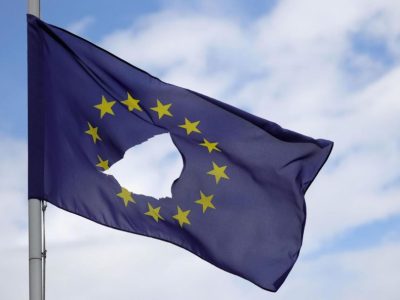Must Serbia Harmonize Its Foreign Policy with the EU and the Rest of the West?

All Global Research articles can be read in 51 languages by activating the Translate Website button below the author’s name.
To receive Global Research’s Daily Newsletter (selected articles), click here.
Follow us on Instagram and Twitter and subscribe to our Telegram Channel. Feel free to repost and share widely Global Research articles.
***
A lot of dilemmas, lies, and misconceptions are present in Western geopolitical narratives taken without any critical approach by domestic Serbian pro-Western supporters (usually financed by Western agencies and Governments) about the war in NATO/EU-sponsored Ukraine, and Serbian position in newly geopolitical circumstances. This article aims to present the focal Western lie about Serbia trying to give some reasonable arguments regarding some open questions: Serbia must harmonize its foreign policy with the EU and the rest of the West!
Serbia, in essence, must not harmonize its foreign policy with the EU for several reasons.
First, not all EU Member States harmonized their foreign policies including anti-Russian sanctions with the general line of the foreign policy of Brussels (like 5 states which did not recognize Kosovo’s independence, or Germany, France, and Hungary which did not impose total sanctions against Russia concerning the energy policy.)
Second, Serbia is not obliged to join the EU at all as the alternatives are closer relations with Russia, China, and especially the emerging Eurasian Union or growing BRICS, etc. Third, the EU itself does not have its own foreign policy at all as it is entirely, in fact, the policy of Washington (or NATO, which is again the US).
However, on other hand, what does it mean American foreign policy at all? In reality, it is an abbreviated expression, it is about the interests of a very narrow group of people who make decisions – who are completely outside the public in that function of the main administrators and the wider apparatus that is in the function of implementing their decisions – the Deep State.
During the last 25 years, the Clintons (Bill and Hillary) are typical expressions of the foreign policy of the Deep State. In their Balkan politics, there was no any place for any national interest of Serbia. Serbs are simply required to cancel all national interests (including territorial integrity of their own state) according to some required order (line), and the “freedom” given to Serbs is constituted within the framework that they do not have to implement all requirements immediately and at the same time, but the whole required package must be implemented in the course of close time under Western monitoring:
Introduction of sanctions against Russia;
Recognition of Kosovo’s independence in the form of consent to receive a seat in the UN;
To agree that the Serb Republic in Bosnia-Herzegovina has to be cancelled what is against the 1995 Dayton Agreement;
To support the unitization of Bosnia-Herzegovina, so that Muslim Bosniaks could outvote the Orthodox Serbs, as they are already doing to the Catholic Croats in the Bosniak-Croat Federation within Bosnia-Herzegovina;
To end successful economic cooperation with China and to agree to all sanctions imposed by the USA/EU on China; To stop assist the regional Serbs living outside Serbia;
To accept Western narrative that genocide was committed in Srebrenica in July 1995; To make distance from the Serbian Orthodox Church;
To accept in all forms the entire LGBT’s ideology; To accept the green (ecological) agenda at the cost of energy instability and enormous indebtedness of Serbia; and finally, to join NATO. No more, no less!
It is obvious that Serbia as an independent state with her own national interests cannot survive if it aligns with the West (USA/EU/NATO) in any of the upper presented requirements – because it is connected as a whole package that is ultimately demanded, and the West separated the items of the package only in time.
Nevertheless, on other hand, Serbia’s new struggle for the preservation of national interests and the state’s territorial integrity is having a real sense as the geopolitical global situation is more favorable for Serbia than it was in the 1990s:
1) All those (NATO/EU/USA) who destroyed former Yugoslavia in 1991−1995 and attacked Serbia in 1999 are incomparably weaker today than they were then; and
2) All those whom Serbia made aware by her struggle for independence (that is, showed them what the West is in its essence) are today much stronger than they were then (Russia, China).
In one word, the West is both economically and militarily weaker compared with focal Serbia’s supporters (Russia and China, plus India). Is there a real sense to capitulate now in front of the Western blatant ultimatums?!
*
Note to readers: Please click the share buttons above. Follow us on Instagram and Twitter and subscribe to our Telegram Channel. Feel free to repost and share widely Global Research articles.
Dr. Vladislav B. Sotirović is a Former university professor in Vilnius, Lithuania. He is a Research Fellow at the Center for Geostrategic Studies. He is a regular contributor to Global Research.
Featured image is from the author

